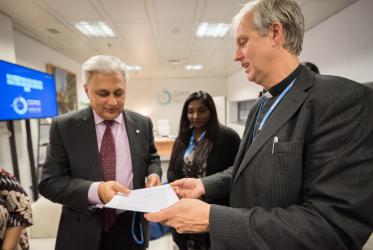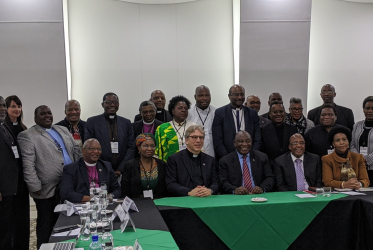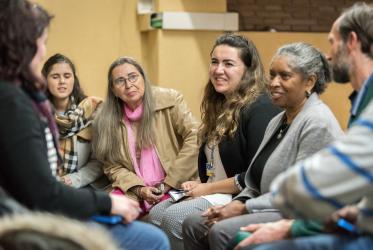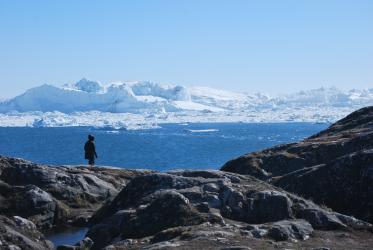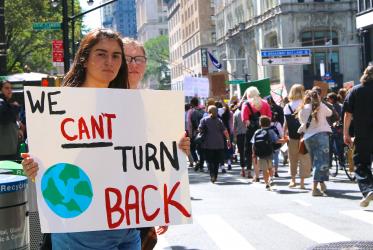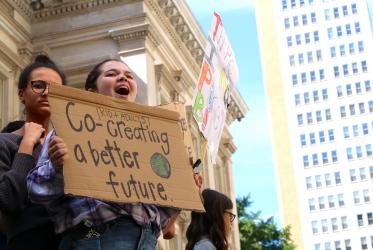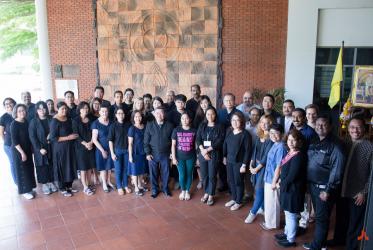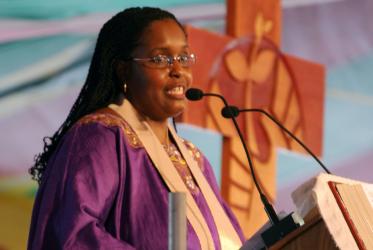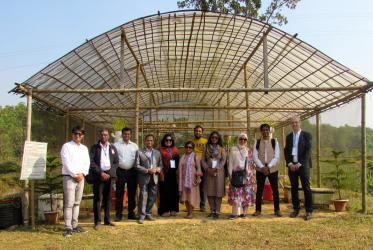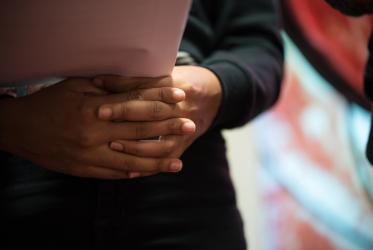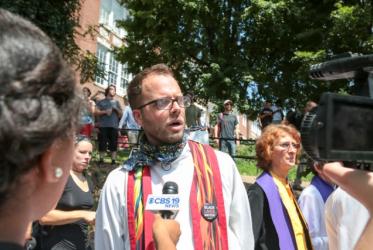Displaying 61 - 80 of 125
10 December 2019
WCC delegation meets with South African President Ramaphosa
09 December 2019
A holistic approach to climate change
03 December 2019
As Season of Creation closes, climate work is just beginning
02 October 2019
WCC joins global climate strike with throngs of young people
21 September 2019
Rev. Chris Ferguson: “Wake up to how this world is”
11 September 2019
Funeral celebrates life of Rev. Robina Winbush
26 March 2019
Workshop in Bangladesh links climate, economic justice
07 February 2019
“There is no more time to waste,” says WCC of climate actions
07 November 2018
Show up in fight against racism, is white American pastor’s plea
14 February 2018
In Zambia, foreign investors complicate “economy of life”
06 September 2017
